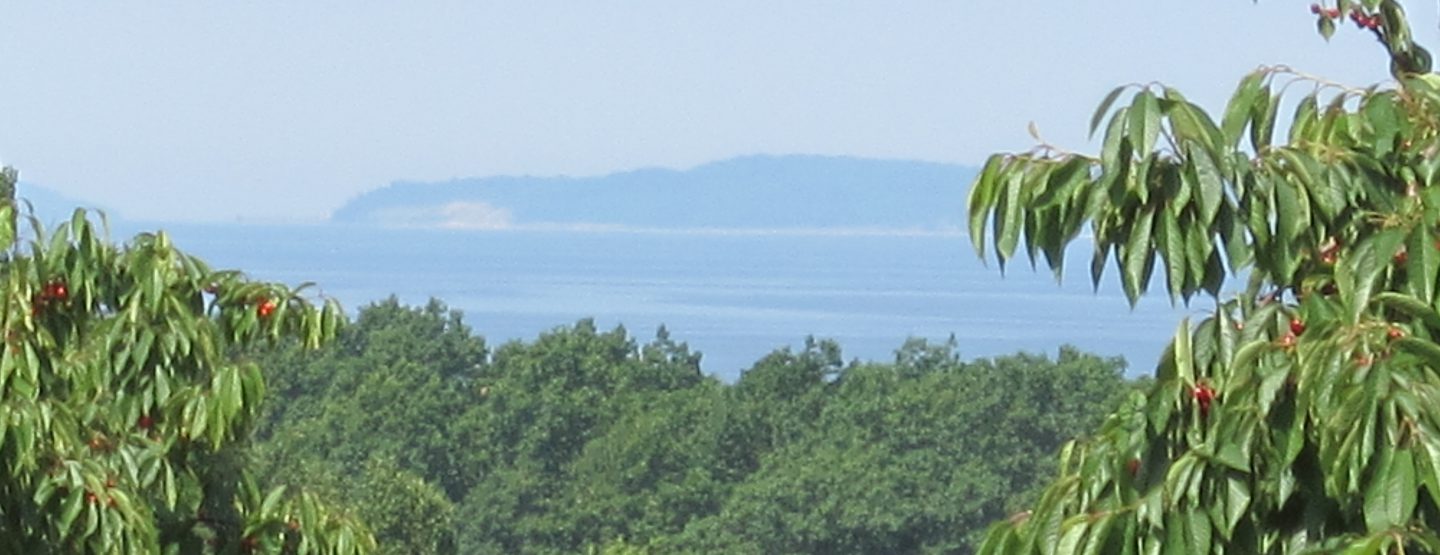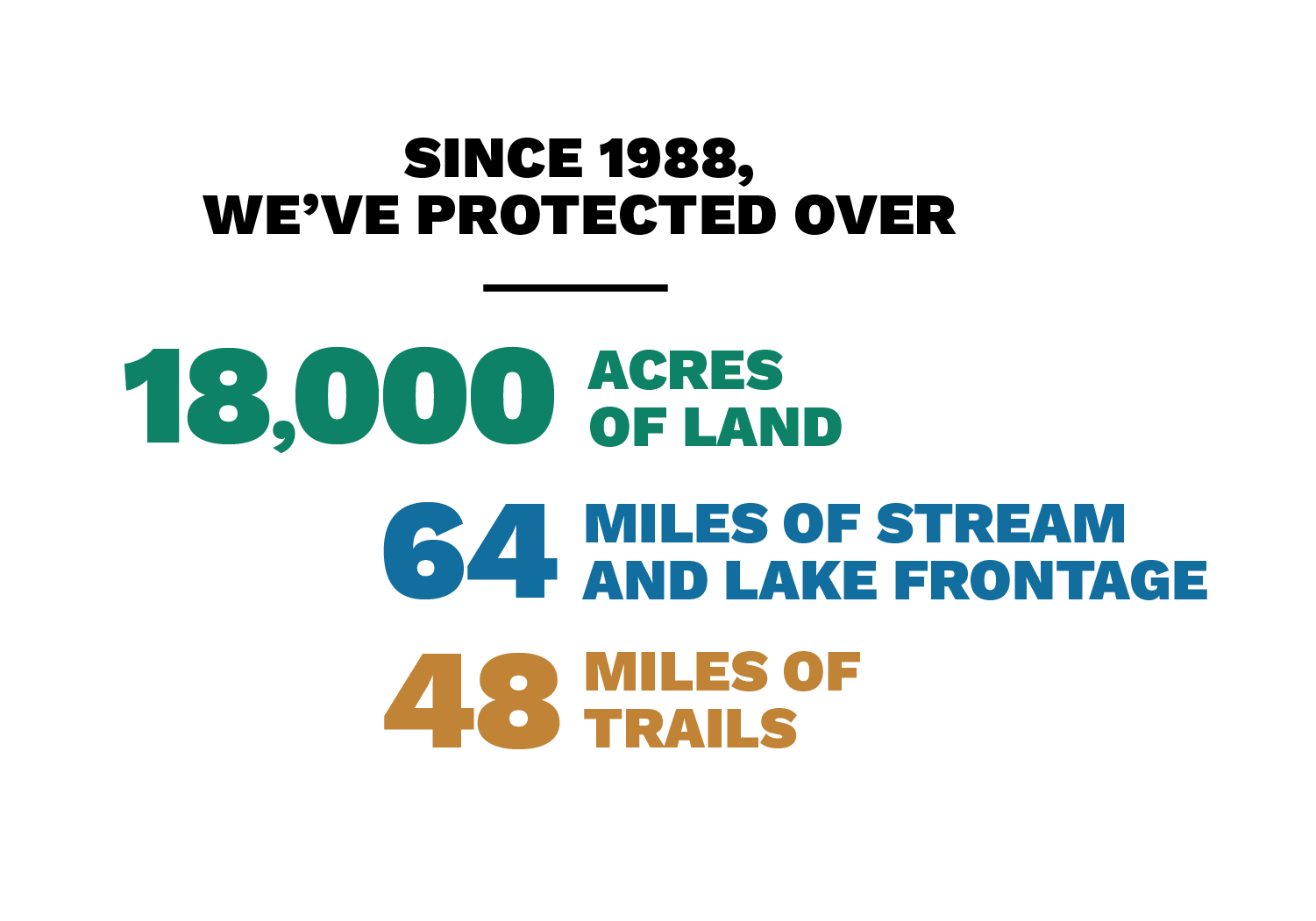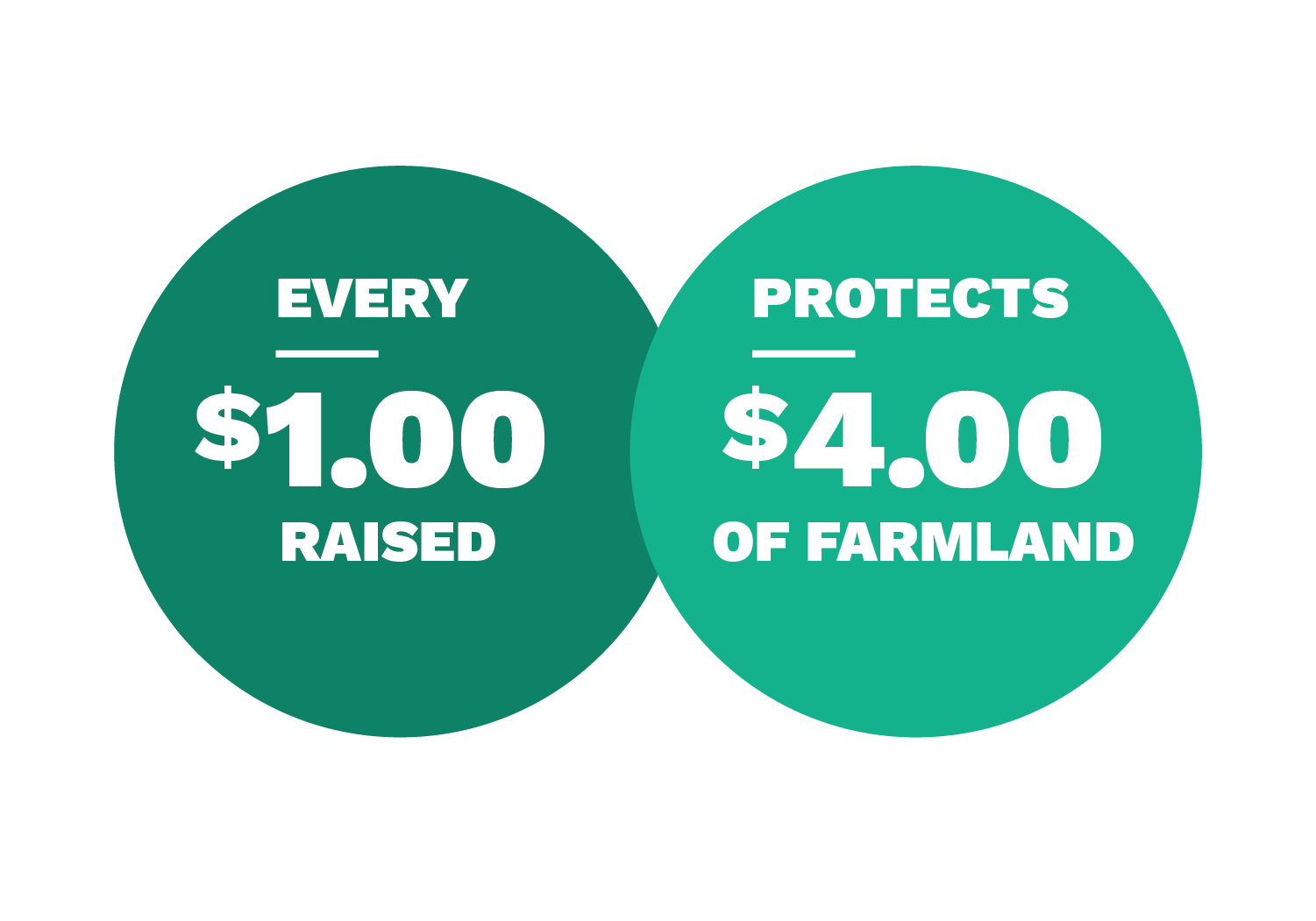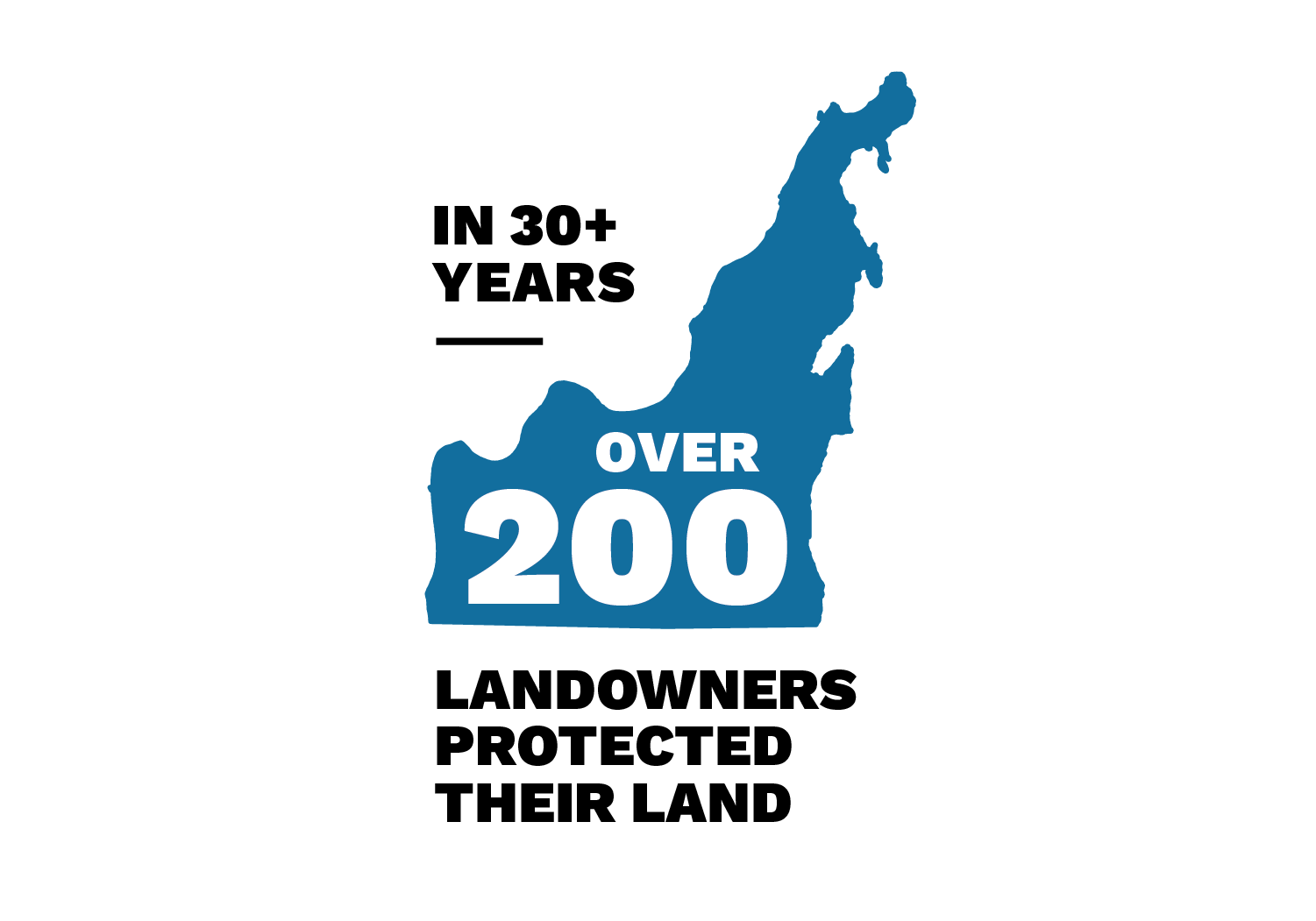From our 2011 Summer Newsletter
July 2011–Standing between the rows of cherry-laden trees on the family’s historic farmstead, Blaise and Sarah Korson, with their grown children Allen and Julie and their 16-year-old grandson Brandon, look out at the Manitou Passage of Lake Michigan. “Just beautiful,” Sarah says, then laughingly jabs, “You’re not really going to wear that shirt for the picture are you, Blaise?” Blaise merely shakes his head and chuckles. “The farm has been in the family since the 1870s when my great-grandfather farmed here.” Then, looking at Brandon who represents the 6th generation on the farm, he adds, “It’s nice to think about future generations of Korsons farming this place.”
A quick rewind to 2009: The Korsons were one of the first families to sign up for the innovative FarmAbility Program—a ten-year conservation agreement launched by the Conservancy in partnership with the Leelanau Conservation District, Michigan State University Extension and the Northwest Michigan Agricultural Research Station. Now, they’re one of the first FarmAbility families to partner with the Conservancy to protect their 153-acre farm forever.
In addition to the Korson Farm, which has acreage in both Leelanau and Leland Townships, the Send & Emeott Farm in Bingham Township and the Stanton Farm in Centerville Township are slated for preservation. Each of these family farms are partnering with the Conservancy and the USDA’s Natural Resources Conservation Service to match local private funds with a grant from the Federal Farm & Ranchland Protection (FRPP) Program. Between 2010 and 2011, the Conservancy successfully applied for $2.87M in federal grants to preserve six farms in six townships. The Conservancy must raise $1.52M in private dollars to access these federal grants, and the six farm families will donate $1.52M in value. If these farms had been sold for development, their aggregate fair market value would have been about $8.0M (See sidebar for more details.) All in all, nearly 1,000 acres of family-owned farmland are currently slated for permanent preservation in Leelanau through the FRPP program.
Back in 2008, before any of us knew the national economy was on the cusp of the worst downturn since the Great Depression, we first explored the concept of FarmAbility as a way to put very limited financial resources to work to help hold the line on the loss of our family farms and incentivize opportunities for farming know-how and to help families plan for transferring the farm to the next generation. Despite the financial crisis, we persevered. In 2009, nearly 30 families enrolled in FarmAbility, several of whom have already committed to protecting their farms forever. “It’s incredibly gratifying to see this community’s commitment to farming really snowballing in the last 5 years,” says Tom Nelson, the Conservancy’s Director of Farm Programs.
While it means enhancing our local economy and food systems, creating jobs and maintaining real quality of life for Leelanau and the Grand Traverse Region, permanently protecting the farm is becoming part of sound business planning for more and more farm families. “It wasn’t too many years ago that the prevailing school of thought in the farming community seemed to be that it was only a matter of time before the County’s family farms became something else,” Tom remarked. “In the last few years, that seems to be changing. We’ve begun to see a new generation of farmers looking to carry on the family business.” No doubt, the farm has to be profitable, but the Conservancy’s preservation program can be a very smart way to provide older farmers with the resources to retire and younger farmers with the means to own the farm and keep the operation—and the family tradition—going strong. As we see it, it’s a huge ‘win-win’ for these hard-working farm families and the community too. Says the Korson’s daughter Julie, “This is the way it should be.”




